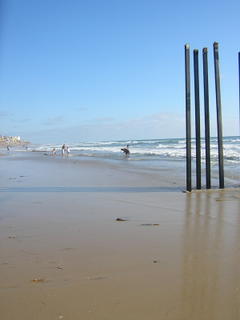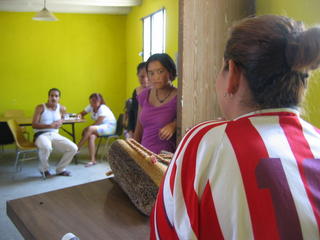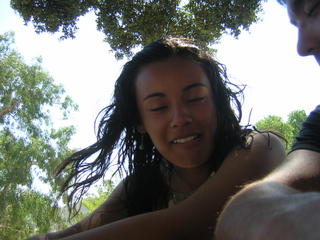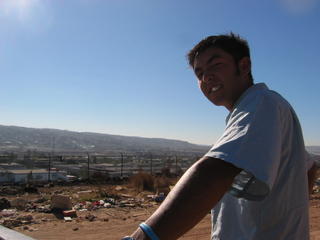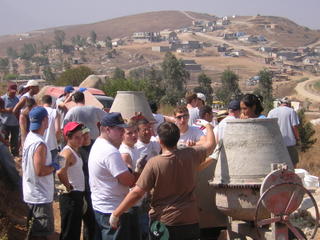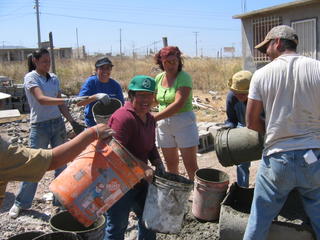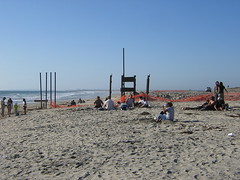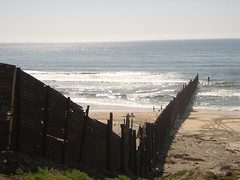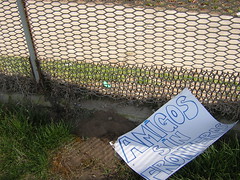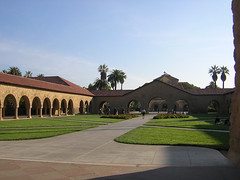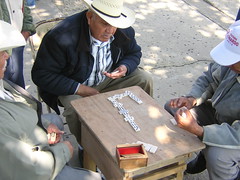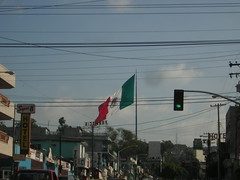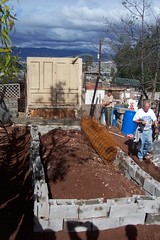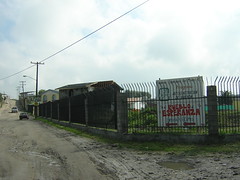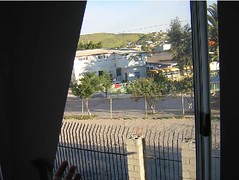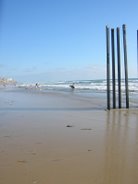Dear Sinjin von Hoogstraaten,
Despite my ranting about the existence of the border fence between the dUS and Mexico, I agree that taking it down is not an immediate solution to the complex problems of illegal immigration. At the same time, instead of viewing it as a solution to the problem of "illegal" flow of people, I see it as a symptom of socioeconomic maladies that underlie these massive migrations (an estimated 400,000+ people from Mexico migrated illegally into the dUS in 2005) of human capital. In treating these illnesses, perhaps someday we will not need a fence between the dUS and Mexico.
To address some of your questions ("...why the heck can't [immigration] be LEGAL?" "Yes, terrorists can enter legally but can't they more easily enter illegally?"), let's analyze the nature of the dUS/Mexico border fence. The dUS has two land borders, one between Canada and one between Mexico. There is no fence between the dUS and Canada. Couldn't terrorists could enter the dUS "more easily illegally" across the dUS/Canadian border? And yet, despite this obvious risk, why is there no legislative movement at the federal level to increase security between the dUS and Canada as there is to add a third border fence and to increase border patrol personnel along the dUS/Mexico border?
Indeed, the dUS/Mexico border policies are largely economically motivated and only mediated through pretexts of homeland security. There are days that the Arizona border patrol is told not to go out on patrol...there is a shortage of low-wage workers in the dUS. In keeping a steady, yet hidden, flow of cheap workers into our country, we are able to afford our lifestyles of excess. 40 million strong, they tend our gardens, build our homes, cook our meals, and more. We need illegal immigrants --> low-wage, legally inivisible workers.
For these same workers to gain LEGAL access to our country, they need to show their payroll stubs, proof of home ownership, Mexican citizen's ID, and any other documents they can dig up. However, a large proportion of those that are motivated to cross illegally come from vocations and locations that do not leave paper trails, they are largely rural farmers and manual laborers. They cannot get visas to come and do needed work at minimum wages LEGALLY in the dUS, nor do "we" want them to. For economic reasons.
Unlike you, I do not hate authority. I am by nature a pacifist. However, I cannot support nor respect an authority unfounded in the reality of our world. As economic policy-maker Hernando de Soto claims, laws should reflect the systems that exist and not punish those that do not comply with an imagined idea of law and order. Our laws should recognize the low-wage workers that our economic systems depend on, instead of shunning them into silent invisibility.
Thank you, Sinjin, for your interest in issues of illegal immigration. I was surprised to find someone other than a family member or a friend reading about my personal exploits. I hope that in the future we may continue a civilized dialogue and that you might refrain from comments like
Marcel, were you huffing paint cans when you wrote how we shouldn't have a fence separating the U.S. from Mexico??!?? (You didn't say that but you sure implied it... and was it the metallic paint or a normal color?)Funny, but a little disrespectful and shortsighted. Let me close with this question by Jean-Jaques Rousseau that I feel captures a direct and clear view of the sometimes hidden inequalities that exist in our world. It's up to you to see them.
"Are you unaware the vast numbers of your fellow men suffer or perish from need of the things that you have to excess, and that you required the explicit and unanimous consent of the whole human reace for you to appropriate from the common subsistence anything besides that required for your own?"
- Jean-Jaques Rousseau, 1775

